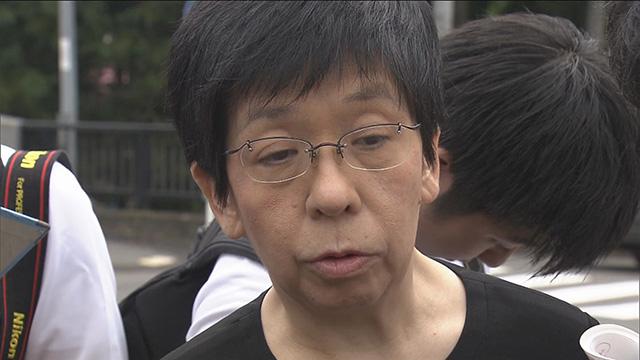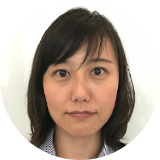Praying for the victims
The Tsukui Yamayuri-en facility is located in Sagamihara City, Kanagawa Prefecture. People with links to the facility and local residents gathered in front of it on Thursday morning, laying flowers and praying for the victims.

Takashi Ono's son, Kazuya, suffered serious injuries in the incident.
"I feel the 2 years have passed quickly," Takashi says. "We are gradually moving forward in our lives. I hope people will remember the nineteen who died.”

"Many feelings bubbled up after I got up this morning," says Kaoru Irikura, the head of the center. "The incident was extremely regrettable, regardless of whether today is the anniversary or not. I pray for them to rest in peace."
The defendant

Uematsu has been indicted on homicide and other charges. He has spoken to NHK in numerous interviews and letters, explaining his motive. Throughout the exchanges, Uematsu has maintained his discriminatory stance. He says he believes people who cannot communicate with others do not have the right to live.
During an interview in June, we again asked him why he carried out the act.
"I thought I may not be able to do anything significant as things stand," he said. "I did it because I wanted to believe my life is worthwhile."
He said he has spoken to many people since the incident, including media members and university professors.
"I have become confident it was the right thing after learning from books and others at the detention house," he said. "I want as many people as possible to know my thoughts.”

We asked him whether he feels any remorse toward the victims and their relatives as the 2-year anniversary approaches. He said he is sorry for killing them but that he still holds his beliefs.
He released a book of his beliefs on people with disabilities through a Tokyo-based publisher.
Officials at the publishing house say they hope the book will foster discussion about the incident and prevent it from being forgotten.
But the book has led to controversy. A number of people, including experts and family members of people with disabilities, collected signatures in an attempt to stop the book's release. They argue it could spread Uematsu's discriminatory beliefs.
Anonymous report and website launched by NHK

Japanese police typically release the names of murder victims to the media. But they withheld the information in this case, arguing special consideration for the bereaved families was warranted.
NHK has interviewed the families and others who knew the victims, compiling information about their personalities, and set up a website called "Remembering the 19."
The mother of a 26-year-old victim told us: "My mind is filled with her even after 2 years. My daughter couldn't speak but expressed thoughts and feelings with gestures and her eyes. Her eyes comforted me. My daughter is precious, regardless of her disabilities."
Uematsu has said those people only create unhappiness. But our reporting on the victims has shown us that this is not true. They had rich emotions. They had close relations with those around them.
'Beliefs may not be so rare'
NHK's website has received more than 800 messages and is still getting more two years on. Some express worry that the incident could be forgotten. Others cite the discrimination and prejudice that still exist in society.
"I don't want this case to be a thing of the past," says a message from a female college student. "This should never be forgotten. The defendant claims that people with disabilities shouldn't exist. But it's wrong for someone to judge the worth of others."
"People with disabilities and those without them can both live with the help of others," says a woman in her 40s. " There's no one who isn't worth being alive. Everyone has the right to live."
While rejecting the defendant's argument, some messages said that such discriminatory beliefs may not be that rare, and are somewhat rooted in society.
"Denying the right of disabled people to live is unacceptable," a nurse in 20s says, "But I still hope my children to be born healthy.”
"The incident made me think of eugenics," says a man in his 50s who works at a facility for the disabled. "I think this idea is in most people's minds one way or another. But the important thing is to recognize the fact and tackle it.”
Trial

Psychiatric evaluations by prosecutor-appointed experts have found Uematsu suffers from several personality disorders, including narcissistic personality disorder, characterized by cravings for admiration and an inflated sense of self-importance.
Pretrial procedures for the case to narrow its focus began last year. But a start date for the trial is still undecided, as Uematsu is still undergoing psychiatric examinations requested by his defense team.

